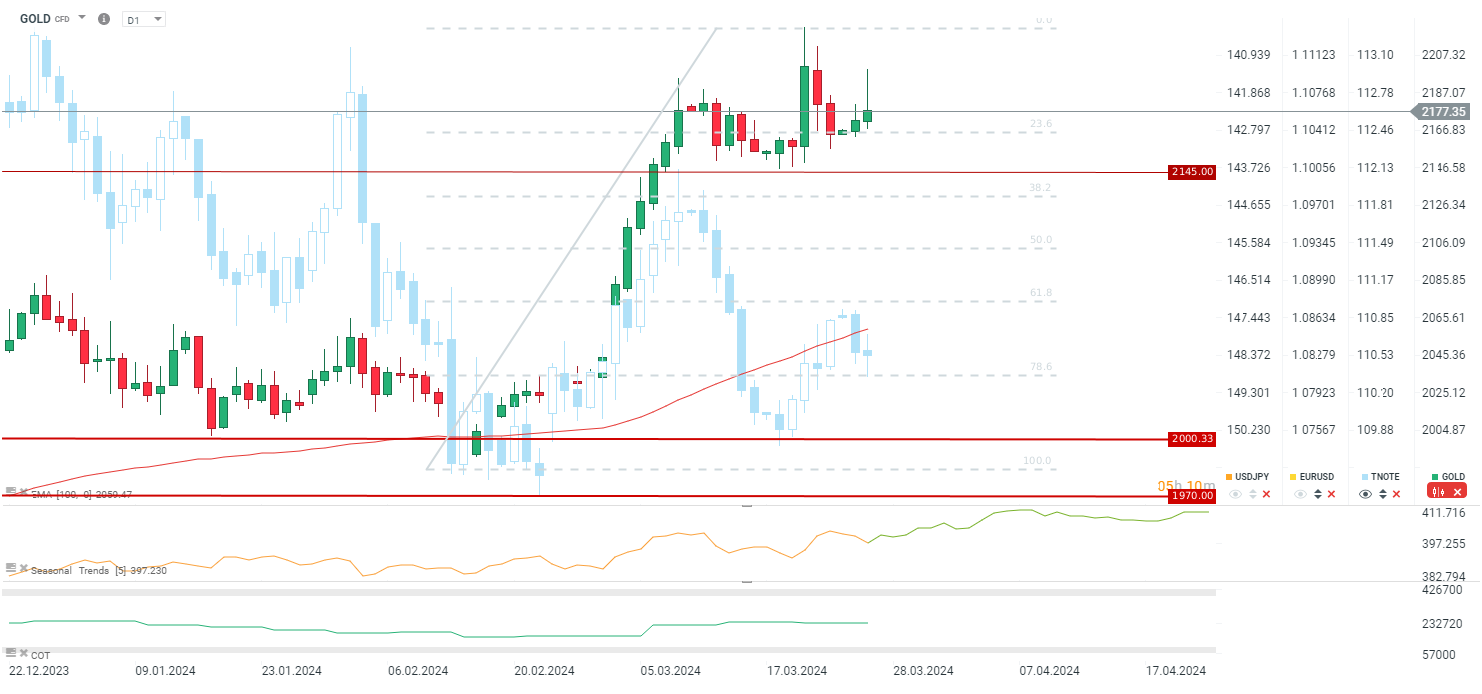Gold is testing the $2200 per ounce level for the third time in recent days, but is unlikely to close above that level today. Gains took place today during the Asian and European sessions, but were clearly reduced during the American session with the strengthening of the US dollar. Nevertheless, from a physical perspective, it is worth noting that there has been recent data indicating strong demand in China, not only from the central bank, but also from individual investors, institutional investors or also for jewellery.
For gold, Friday will be key, although the bullion itself will not be traded then. Nevertheless, investors will receive data on PCE inflation, and additionally Powell will speak. In view of this, the market reaction will take place early next week.
Technically, the nearest support is around the retracement of 23.6% and then the level of $2145 per ounce. Theoretically, seasonality points to a continuation of gains and to this we have the recent increase in net long positions on gold. On the other hand, the tone coming from the Fed will count. If the Fed is on the road to cuts in June, then gold could continue its upward trend. However, if the message from the Fed will flow more in the direction of delaying cuts, then gold may score a larger correction, towards $2,000 per ounce.


Morning Wrap: Global sell-off in the technology sector (13.02.2026)

Daily summary: Silver plunges 9% 🚨Indices, crypto and precious metals under pressure

🚨Gold slumps 3% amid markets preparing for Chinese Lunar Year pause

Cocoa falls 2.5% to the lowest level since October 2023 📉


